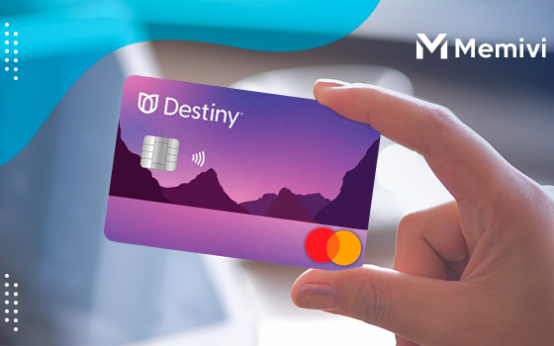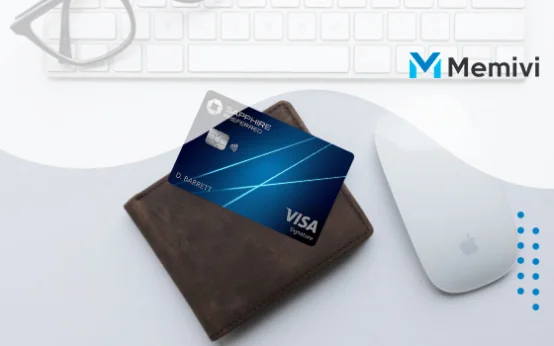
Rapidly eliminating debt can reduce stress, improve credit ratings, and free up money for future investments. With the right approach, you can tackle your debts effectively, and our tips below will show you exactly how. From understanding why it’s crucial to fast repayment strategies and avoiding common pitfalls, discover how paying off debt can transform your financial health.
Why Paying Off Debt Fast Matters
Eliminating debt quickly is crucial for maintaining financial health and reducing stress. When you pay off your debt quickly, you save money on interest payments. Credit card debt typically comes with high interest rates, which can accumulate fast if not addressed. By tackling this debt head-on, you prevent it from growing into a larger burden.
Fast repayment also improves your credit score. A lower debt-to-credit ratio can increase your credit standing, making you more eligible for favorable loan terms in the future. This not only aids in financial security but opens up opportunities for investment and purchasing.
Besides financial benefits, clearing debt quickly contributes to emotional wellness. Debt often leads to stress and anxiety, affecting your mental health and potentially your relationships. As the debt decreases, so does the associated stress, improving quality of life.
Another consideration is the impact on financial planning. With debt out of the way, it’s easier to set aside money for other goals like retirement savings or starting a business. Having no debt improves your overall financial stability, allowing you to better withstand unexpected expenses and emergencies.
Top Strategies to Pay It Off Fast

1. Set a Clear Budget and Stick to It
Start by mapping out a comprehensive budget. List all your monthly expenses and identify areas where you can cut back. Allocate these savings towards your credit card debt. Consistently tracking your spending ensures you’re directing maximum funds to pay down the balances.
2. Prioritize High-Interest Debts
Focus on paying off higher interest credit cards first. This is known as the avalanche method. By eliminating high-interest debts, you lower the overall amount you’ll pay in interest, allowing you to tackle other debts more effectively.
3. Consider the Snowball Method
The snowball method involves paying off your smallest debts first. This approach can be motivating and creates a series of quick wins, keeping you motivated as you gradually move to larger debts. Pay minimum amounts on larger debts while concentrating extra payments on the smallest balance.
4. Use Windfalls Wisely
Whenever you receive unexpected money like bonuses, tax refunds, or gifts, commit to using them towards your debt. These lump sums can significantly reduce your debt balance, bringing you closer to being debt-free.
5. Negotiate for Lower Interest Rates
Don’t hesitate to contact your creditors to negotiate a lower interest rate. Lower rates mean more of your payments go toward the principal, helping you eliminate debt faster. Present your excellent payment history as a reason for the reduction.
6. Explore Balance Transfers
A balance transfer can consolidate your debts under a single low-interest or zero-interest rate for a set period. This can provide relief from high-interest payments, enabling you to allocate more funds directly to the principal. Plan strategically to pay off the balance before promotional rates expire.
7. Establish Automatic Payments
Set up automatic payments to ensure you never miss a payment. This habit helps avoid late fees and can improve your credit score, potentially lowering interest rates on other debts.
8. Increase Your Income
Boosting your income allows for larger payments towards debt. Consider side hustles, part-time jobs, or freelance work to generate extra cash. Direct all additional earnings to your credit card debt for accelerated payoff.
9. Seek Professional Guidance
If your debt feels overwhelming, consult a financial advisor. They can offer personalized strategies and solutions, such as debt management plans, tailored to your situation.
Common Mistakes to Avoid
- Ignoring High-Interest Rates: Prioritize tackling high-interest debts first. Ignoring these can lead to paying more in the long run.
- Making Only Minimum Payments: Though tempting, this keeps the debt cycle going and increases interest costs.
- Overlooking a Budget: Failing to create and stick to a budget might result in unnecessary expenses, hindering debt repayment.
- Accumulating New Debt: Avoid adding to your credit card balances while trying to pay them off. Focus on clearing existing debts first.
- Not Monitoring Your Progress: Regularly track your repayment progress to stay motivated and adjust strategies if necessary.
- Neglecting to Seek Lower Interest Rates: Investigate options for lower interest rates, such as balance transfers or loan consolidation.
By avoiding these errors, you can focus on efficient debt reduction and achieve financial freedom faster.
Long-term Benefits of Rapid Debt Repayment

Paying off debt quickly can lead to a multitude of long-term benefits that go beyond just being debt-free. One major advantage is the significant reduction in interest payments over time. When you pay off your debt rapidly, you decrease the total interest accrued, saving you money that can be used for other important financial goals.
Another benefit is the improvement in your credit score. Reducing your debt enhances your credit utilization ratio, one of the critical factors in credit score calculations. A better credit score can open doors to lower interest rates on mortgages, loans, and even help lower insurance premiums.
Moreover, rapid debt repayment provides a boost to your personal financial security. With less debt, there is a greater opportunity to build savings and investments. This creates a safety net for unexpected expenses and helps prepare for future financial goals, such as retirement or education funds.
Eliminating debt quickly also decreases financial stress. Many people experience relief and improved mental health knowing they are financially on track. This newfound peace of mind can positively influence other areas of life, including personal relationships and work productivity.



 The Destiny Mastercard <p class='sec-title' style='line-height: normal; font-weight: normal;font-size: 16px !important; text-align: left;margin-top: 8px;margin-bottom: 0px !important;'> Rebuild, Refresh, and Rise — A Simple Way to Take Back Your Financial Confidence </p>
The Destiny Mastercard <p class='sec-title' style='line-height: normal; font-weight: normal;font-size: 16px !important; text-align: left;margin-top: 8px;margin-bottom: 0px !important;'> Rebuild, Refresh, and Rise — A Simple Way to Take Back Your Financial Confidence </p>  In-Depth Review: The Chase Sapphire Preferred Card <p class='sec-title' style='line-height: normal; font-weight: normal;font-size: 16px !important; text-align: left;margin-top: 8px;margin-bottom: 0px !important;'> Dive into an in-depth review that reveals everything you need to know about the subject </p>
In-Depth Review: The Chase Sapphire Preferred Card <p class='sec-title' style='line-height: normal; font-weight: normal;font-size: 16px !important; text-align: left;margin-top: 8px;margin-bottom: 0px !important;'> Dive into an in-depth review that reveals everything you need to know about the subject </p>  Don’t Get Scammed: 5 Red Flags of Credit Card and Banking Fraud <p class='sec-title' style='line-height: normal; font-weight: normal;font-size: 16px !important; text-align: left;margin-top: 8px;margin-bottom: 0px !important;'> It's important to protect yourself from scams in today's digital world </p>
Don’t Get Scammed: 5 Red Flags of Credit Card and Banking Fraud <p class='sec-title' style='line-height: normal; font-weight: normal;font-size: 16px !important; text-align: left;margin-top: 8px;margin-bottom: 0px !important;'> It's important to protect yourself from scams in today's digital world </p>